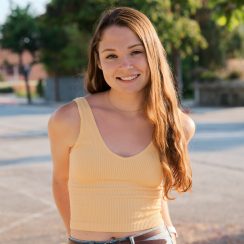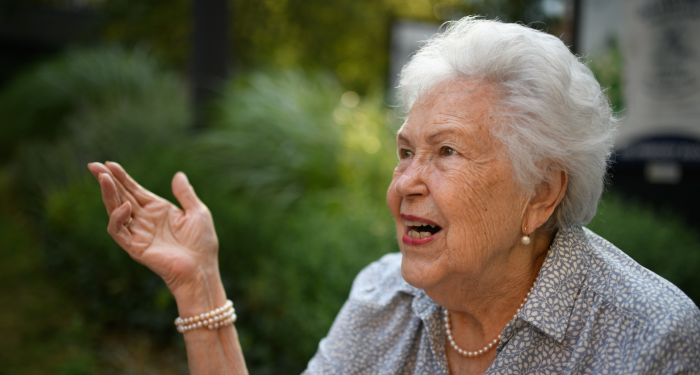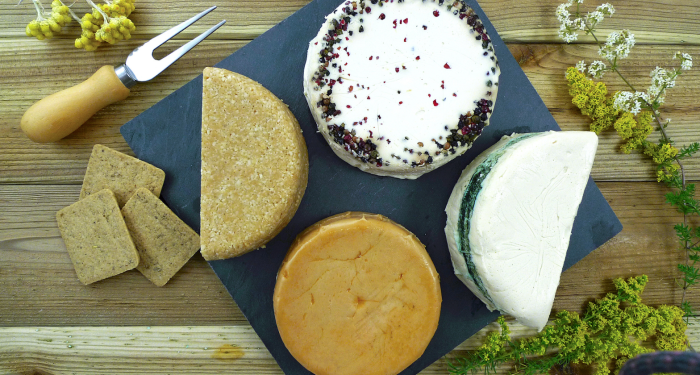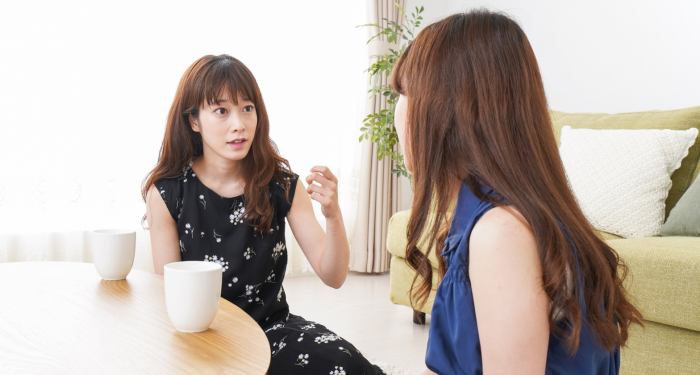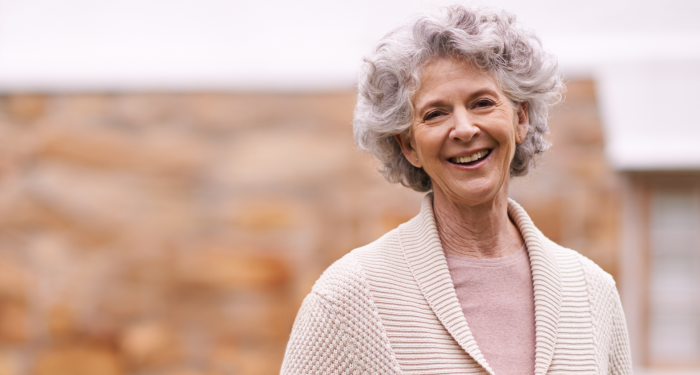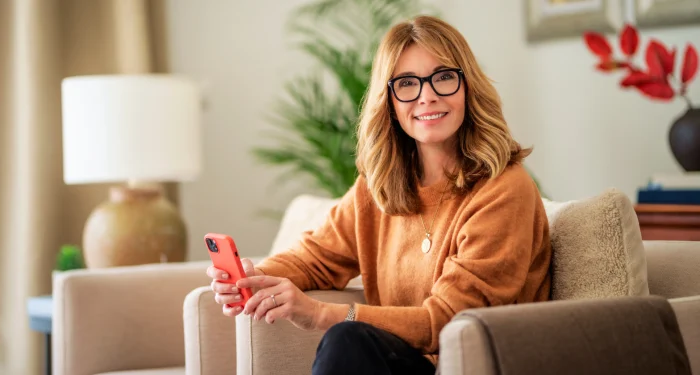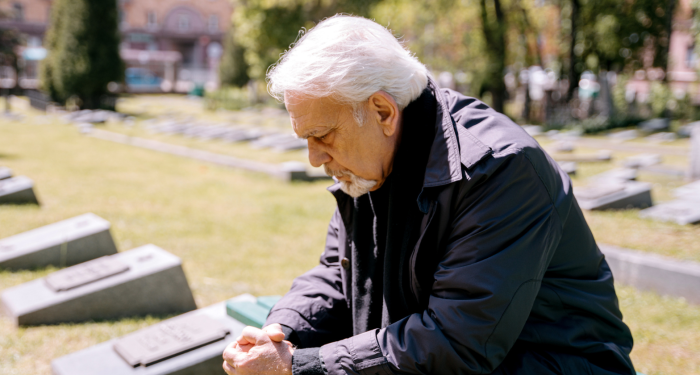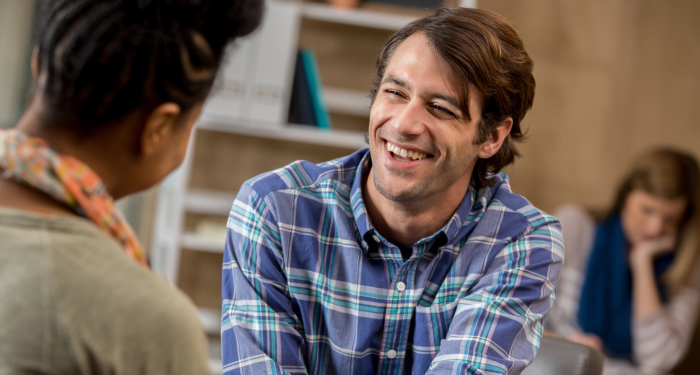Check out this interview with Ayindè Howell, the creator of Mac & Yease!
From owning a vegan cafe in Seattle and inventing Whole Foods’ iconic Mac & Yease to curating a multi-course vegan dinner at Coachella, Ayindè Howell puts his all into everything he creates. In addition to being a chef, Howell is an actor, writer, and yogi. We chatted with Howell to learn more about his style of plant-based cooking, his thoughts on Black entrepreneurship, and his suggestions for allyship. Here’s what he had to say!

Ayindè Howell Nicole Somsung
VegOut (VO): You’ve been vegan for life, right? What was it like to grow up vegan?
Ayindè Howell (AH): It was like walking uphill to school in the snow every day. We had first-gen soy milk and first-gen vegan cheese, which was terrible. Today, it is easy—at least in the coastal cities. You can walk anywhere and order something vegan, and they know what it is. Except for the people who think it’s gluten-free.
So, social outings with food would consist of fries, a salad, or hummus. And it was embarrassing to stand out. I was a shy kid, so [I was glad to see] the acceptability of veganism—the normalizing of it. It still has a long way to go.
VO: What first inspired you to become a chef?
AH: It runs in the family, and I feel like I have karma with food. I always come back to it.
I am inspired by the areas of growth I’ve seen in the plant-based world. But I can’t say I am inspired by the way it’s being steered. You can see the fatigue starting to come up in meme culture. It’s like, “Another vegan burger. Wow, thank you.”
But it only shows we have [a long way] to go. Veganism hasn’t fully spread to all of the international cultures—even though there is familiarity. Mainstream culture is interested in veganism, but American burgers don't translate to Sri Lankan street food. Once [veganism] starts to see a global influence, I feel like it’s going to explode from there.

Ayindè Howell Nicole Somsung
VO: We love that you use a lot of fresh produce when you cook. Do you have any tips for new vegans looking to create dishes with whole foods rather than processed substitutes?
AH:
- Hit farmers markets in the summer during peak season and get organic produce. Once you see and taste the difference, it becomes really hard to go back.
- Experiment with combining proteins. For example, cut chickpeas with other legumes or mix tofu with mushrooms.
- Introduce yourself to the grain world. There are many different kinds of ancient grains that are not as heavily modified as some of our main crops. Look for millet, komoot, and teff. Do your research and experiment. The key to portioning is this: You’re not supposed to eat more than you can hold in your hand. Grains double or triple in size after they’re cooked. Take notes, and when you work with them, see how your body reacts.
VO: You once owned Hillside Quickies Vegan Sandwich Shop in Seattle, Washington. Can you tell us what it was like to own a restaurant at a young age?
AH: It was very educational, and [it was a time] of immense growth. I had no idea what I was doing—I just knew how to cook and had mentioned it to my family since we already owned a business. I didn’t even know I had the capacity to do something like that on my own. I believed in myself, my parents believed in me, and I built a customer base from scratch. As we got going, 9/11 happened and everybody stopped going out. Then, once we got back on track, the Atkins diet came around. It was challenge after challenge. But I made it.
VO: Now you are the founder and executive chef of the vegan food brand iEatGrass. How did that come about?
AH: iEatGrass started as a food blog. I quit my executive chef jobs in Manhattan, so it was a way for people to keep up with me. It also helped me stay on top of things in the food world. It wasn’t until 2018 that I was brought in as a supplier to Whole Foods. That’s when I really started to focus on growing the food manufacturing part of the brand.
VO: Aside from cooking, you also act, write, produce, and practice yoga. Why is it important to you to have multiple creative outlets?
AH: Things like yoga help me stay relaxed and in the moment, which feeds my creativity when I’m acting. When I’m workshopping a scene or writing and get stuck, I cook. That is relaxing and a natural instinct to me, since I’ve done it so much of my life.
VO: At VegOut, we are big on recognizing and embracing intersectionality. How can we be good allies for the Black vegan community?
AH: Being a good ally means amplifying Black voices all the time—not just when there’s a crisis, when it’s Black History Month, or on Juneteenth, but every day. It means familiarizing yourself with how Blackness intersects with veganism. Black people eat food differently [in] different parts of the world.
When I make food, [I want] a Black person in the South, Caribbean, or Nigeria to taste [it] and recognize my blackness and theirs in it. That sets the table for Black people to see themselves in a plant-based world.
VO: What piece of advice would you like to share with other Black entrepreneurs in the vegan space?
AH: The food industry is the last industry to be decolonized from an owner’s perspective. If you have good recipes or a good idea, there is opportunity in this business. We need more faces and talent creating vegan food for the Diaspora.

Ayindè Howell Nicole Somsung


